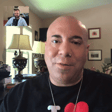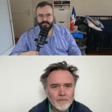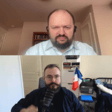Introduction: Low Production Value Sphere Podcast
00:00:00
Pascal-Emmanuel Gobry
Hello everyone, and welcome to the Low Production Value Sphere podcast, which is shot from my terrorist hideout in Stockholm. Because apparently now Al-Qaeda isn't Sweden, or maybe it isn't, or maybe it is.
Guest Introduction: Polina Nodig and Immigration Topics
00:00:16
Pascal-Emmanuel Gobry
ah That's what we're going to talk about ah with my ah with my good friend Polina Nodig. She's a... I hope I pronounced that right, by the way.
00:00:25
Pascal-Emmanuel Gobry
ah ah you can You can tell me how it's pronounced I've had my name mispronounced so many times I've learned to just live with it ah but
00:00:36
Paulina
same here. It's it's noiding but but your version was fine.
00:00:37
Pascal-Emmanuel Gobry
yeah Noiding, okay.
Comparative Immigration: France and Sweden
00:00:41
Pascal-Emmanuel Gobry
ah your ah ah You're a journalist in Sweden and you have for many, many years ah written extensively in Swedish and English about all the issues related to immigration and the nexus of issues around immigration, which is crime, Islamism, and and so on and so forth.
00:01:06
Pascal-Emmanuel Gobry
ah related to Sweden and I wanted to talk to you because it's interesting, it's interestingly interesting, but um one thing coming from France is, you know, when you talk about immigration in France, it's related to colonialism,
Colonial Ties and Immigration in France
00:01:23
Pascal-Emmanuel Gobry
right?
00:01:23
Pascal-Emmanuel Gobry
It's our former colonies and they're sending their people because they have the language, they share
00:01:28
Pascal-Emmanuel Gobry
you know Some of the culture you could say, ah there's certainly a shared history. ah And so it sort of feels – there's a kind – there's a link between France and Senegal and France and Algeria. That's that's just a fact. you You can argue whether that justifies immigration or not or the levels of immigration, but it exists.
Sweden's International Image vs. Immigration Realities
00:01:51
Pascal-Emmanuel Gobry
you know so i But in Sweden, Sweden never colonized anybody. I mean, I'm sure somebody will pop up and and comment and send that in 1674, whatever.
00:02:00
Paulina
Exactly that, yes.
00:02:02
Pascal-Emmanuel Gobry
but It didn't have a huge colonial empire the way France and and Britain did. ah so And so it's sort of weird when when you see this because you think of Sweden as this totally peaceful, you know, Ikea, Abba country where, you know, nothing happens but also everybody's happy.
00:02:23
Pascal-Emmanuel Gobry
ah And all of a sudden you read about, you know, Somalians burning down building. I shouldn't laugh. ah But you read it and it's very strange.
History of Immigration in Sweden: Challenges and Policies
00:02:32
Pascal-Emmanuel Gobry
So I guess my first question is, what's the history of immigration in Sweden?
00:02:37
Pascal-Emmanuel Gobry
When did it start?
00:02:39
Pascal-Emmanuel Gobry
How did it start? ah You know, what's the deal with Somalians? Why do you guys apparently love Somalians so much? So how did it get started and where did did we did we get to this point?
00:02:51
Pascal-Emmanuel Gobry
And then we'll talk about what's happening now.
00:02:54
Paulina
Well, and you know, in in as you said, in Britain and France, there's always been this narrative of the empire strikes back, right? um we We don't have that history.
00:03:06
Paulina
Mostly, and if you look at immigrant neighborhoods in Sweden, ah the most crime-ridden neighborhoods, they are the result of Swedish asylum and asylum policies, which were extremely liberal for many many years.
00:03:17
Pascal-Emmanuel Gobry
Yeah.
00:03:21
Paulina
And Sweden had this idea of itself as a humanitarian superpower. ah Literally, that was the word that was being used.
00:03:27
Pascal-Emmanuel Gobry
Right.
00:03:31
Paulina
Sweden was going to be a humanitarian superpower. And it started like in in Germany and elsewhere with labor immigration in the 1950s and 60s.
00:03:41
Pascal-Emmanuel Gobry
Right.
00:03:44
Paulina
And then gradually, yeah the union started to to protest these so liberal yeah labor immigration laws. gradually and immigration in Sweden began to shift towards asylum immigration and I am a result of that policy.
Somali Immigration and Integration Issues
00:04:04
Paulina
My my parents came to Sweden and in the late 1960s as refugees from Poland and then things gradually began began to shift to
00:04:17
Paulina
to North Africa and the Middle East and we have, as you said, i you know, I wouldn't, yeah there's there's no reason to be, you know, sarcastic about it, but we we have had a large Somali immigration among among other groups, which obviously has to do with the situation and in Somalia.
00:04:35
Pascal-Emmanuel Gobry
Yeah.
00:04:39
Paulina
So that's completely understandable, but it's been very, we've had tremendous challenges when it comes to integration and culture clashes.
00:04:48
Pascal-Emmanuel Gobry
Right.
00:04:49
Pascal-Emmanuel Gobry
Right.
00:04:51
Pascal-Emmanuel Gobry
So, OK, so liberal asylum policies.
Critique of Sweden's Humanitarian Self-Image
00:04:56
Pascal-Emmanuel Gobry
OK, I mean, i I find the notion of a humanitarian superpower ah
00:05:03
Pascal-Emmanuel Gobry
funny or sad, depending on how you look at it.
00:05:06
Paulina
It is sad. And Ayaan Hirsiali expressed it quite well the other day. She said that Sweden wanted to be a humanitarian superpower and and ended up being a humanitarian basket case.
Impact of 2015 Immigration Wave on Sweden
00:05:20
Paulina
and But if you if we fast forward to 2015 and the immigration wave, Sweden took in more immigrants per capita than and any other European country, more than than Germany, for instance.
00:05:21
Pascal-Emmanuel Gobry
Yeah.
00:05:32
Pascal-Emmanuel Gobry
Okay. So 2015, what, what happens in 2015?
00:05:36
Pascal-Emmanuel Gobry
Why is that a shift?
00:05:37
Paulina
in Okay, so 2015, it wasn't a shift for Sweden, ah but Sweden and wanted to step up as this humanitarian superpower, and we took in more immigrants per capita than Germany, for instance.
00:05:53
Pascal-Emmanuel Gobry
Right. Right.
00:05:53
Paulina
So immigrants tended to to migrate through Europe up to Sweden, because we have the most had the most liberal policies.
00:06:02
Paulina
and And the head of the swedish Swedish Migration Agency at the time famously said, we're not the ones who are weird. It's everyone else. Everyone else is strange for not doing what we're doing. And then, of course, the system was overloaded and the government ended up having to m take measures to to lower immigration at the end of 2015.
00:06:34
Paulina
And then, of course, came Cologne, ah the mass sexual attacks in Cologne.
00:06:37
Pascal-Emmanuel Gobry
Right.
Culture and Policy: Immigration vs. COVID Response
00:06:39
Paulina
When this happened, it turned out...
00:06:40
Pascal-Emmanuel Gobry
Oh, right. I'm, I'm stupid. Of course, 2015 is when the Merkel Dameron happened.
00:06:46
Pascal-Emmanuel Gobry
Right.
00:06:47
Paulina
And this is interesting because...
00:06:47
Pascal-Emmanuel Gobry
Yeah. Yeah. And, and, and so Sweden sort of, you know, you had Germany saying we're going to end then Sweden essentially was like the the first follower, the, the, the, they went along and said, yes, yes, yes.
00:06:59
Pascal-Emmanuel Gobry
Even though, okay.
00:07:00
Paulina
and And we took in more more people but per capita than Germany.
00:07:01
Pascal-Emmanuel Gobry
Okay. Got it. Got it.
00:07:03
Paulina
I think it was up to 160,000 asylum seekers in a country of 10 million in one year.
00:07:09
Pascal-Emmanuel Gobry
of 10 million people.
00:07:10
Paulina
ah so So that was ah very extreme. and you knows It's funny when we talk about the migration wave because when we write the history of that chapter in Europe, we tend to forget that the year of the migration wave ended with the mass sexual attacks in Cologne, which are the
00:07:31
Pascal-Emmanuel Gobry
Right, yes.
00:07:32
Paulina
and you know, most massive attacks on women and children and in peacetime Europe.
00:07:37
Pascal-Emmanuel Gobry
Yes.
00:07:40
Pascal-Emmanuel Gobry
Yes.
00:07:40
Paulina
so So we tend to, we we write the history of 2015 and we talk about unemployment and we talk about crime, but we tend to forget this this event, which which I, you know,
00:07:48
Pascal-Emmanuel Gobry
Right, right. People just forget because there's so much, yes, it was, and it was coordinated too, right? They sort of coordinated on WhatsApp and they just went out trying to rape, you know.
00:07:57
Paulina
I don't know about that. I don't know if WhatsApp was was that big at the time already, but but what what we do know is that these men used the crowd as a means to attack these victims.
00:08:07
Pascal-Emmanuel Gobry
Right.
Media and Crime Reporting Shifts in Sweden
00:08:12
Paulina
And then when that happened, Swedish media started to report on Cologne after a few days when things began to transpire. Swedish media took what I perceived as a new approach to um to crime.
00:08:27
Paulina
They they suddenly reported that yes, these were indeed migrants, which in Sweden you don't you tend not to do because it's it's not nice to say if someone is a migrant or not.
00:08:33
Pascal-Emmanuel Gobry
Right. Yeah, originally they didn't know.
00:08:39
Pascal-Emmanuel Gobry
Yeah.
00:08:39
Paulina
And then it turned out that something similar had happened in Sweden on a on a smaller scale, but ah for two years in a row at ah at a Stockholm music festival for and you know young young teens and and you know and youths and There had been you know a similar and similar kind of attacks against some very young girls were where these young men cooperated in groups to to attack.
00:08:57
Pascal-Emmanuel Gobry
Yeah.
00:09:10
Pascal-Emmanuel Gobry
Right. great Right.
00:09:13
Paulina
And the police hadn't hadn't worn these girls or their parents because they you know the the audience was very young in part. And a local chief of police said that, you know, sometimes we do not say exactly how it is because we don't want to play into the hands of the Sweden Democrats who are Sweden's anti-immigration party.
00:09:33
Pascal-Emmanuel Gobry
Right.
00:09:35
Paulina
ah So what she said openly, we we didn't say because it was important not to. So so going back to Ayane and what she said about a humanitarian power turning superpower turning into a humanitarian basket case, and imagine having you know the
00:09:46
Pascal-Emmanuel Gobry
Yeah.
00:09:55
Paulina
yeah just morally choosing not to warn very young girls
Crime, Welfare State Ideals, and Immigration Perceptions
00:10:00
Paulina
about the risk they were taking going to this ah music festival.
00:10:00
Pascal-Emmanuel Gobry
Yeah.
00:10:03
Pascal-Emmanuel Gobry
Yeah.
00:10:04
Paulina
Because you want to, you think of the feelings of the perpetrators or the the idea of immigration, which was, had become the symbol of being good, of being pure, of being, you know, virtuous, exactly.
00:10:14
Pascal-Emmanuel Gobry
Right, right. Virtuous.
00:10:20
Pascal-Emmanuel Gobry
Yeah. i mean i so i you know I could ask you a bunch of questions about the reality of no-go zones, crimes, et cetera.
00:10:33
Pascal-Emmanuel Gobry
and and And we're going to do some of them. But actually, the more you hear, the more I'm fascinating by the cultural questions. Um, cause one of the things you mentioned is the guy saying, Oh, you know, we're not weird.
00:10:46
Pascal-Emmanuel Gobry
Everybody else is weird.
00:10:48
Pascal-Emmanuel Gobry
And, you know, I think Sweden it is interesting because I was putting this in relation to COVID. During COVID, Sweden was the only country in the world really before, you know, red states and in America to say, okay, we're going to do a different approach.
00:11:07
Pascal-Emmanuel Gobry
And like the literally the entire world came down on them and they were like, Yeah, but we're, we're just going to do this because, you know, we have, you know, we believe it's the right thing. And so we're just going to pursue our own approach. And I thought that was amazing because this idea of cultural self-confidence of saying, well, we're going to do our way because it's our way and we like it. And if other people want to do things differently, that's fine, but we're just going to do our thing. Um, usually in, in America, in Western Europe,
00:11:42
Pascal-Emmanuel Gobry
immigration is linked to anti-patriotism, right? The more patriotic you are, the more anti-immigration you are, and the more you hate your country, the more pro-immigration you are. um so i get So I guess my question, you know, If Sweden has the kind of cultural self-confidence to be able to say to the entire world, no, we're going to we're going to open bars because our scientists and our doctors say that's okay and you know we're just going to believe them. And if the rest of the world disagrees, that's fine. If you have that kind of self-confience of cultural self-confidence in your country, in your institutions and so on, you know why do you do this?
00:12:23
Paulina
That's a very, very good point. um There wasn't even a, when COVID happened and Sweden was the odd man out, there was even this idea of, again, of Sweden being a light among nations.
COVID-19 as a Reflection of Swedish Cultural Confidence
00:12:39
Pascal-Emmanuel Gobry
Right.
00:12:40
Paulina
We have something very special to teach the world. And it was even called and public health nationalism.
00:12:45
Pascal-Emmanuel Gobry
Right.
00:12:48
Paulina
that swept the country. We're different. We're special. and So Sweden, I mean, the this Swedish left has been extremely and influential culturally.
00:12:59
Paulina
So we're beating ourselves up as much as everyone else. But then we have this idea of ourselves as very, very special.
00:13:07
Pascal-Emmanuel Gobry
right
00:13:07
Paulina
And it's um it's ah It was expressed ah through this public health nationalism, just as it has been expressed through this idea of the humanitarian superpower.
Sweden's Dual Self-Image and National Identity
00:13:19
Pascal-Emmanuel Gobry
Yeah.
00:13:19
Paulina
So we're beating ourselves up, we're horrible, we're bad, yeah but we're also very, very special.
00:13:26
Paulina
So there's this duality in the Swedish self-image, which is very, very interesting.
00:13:26
Pascal-Emmanuel Gobry
Yeah, it it yeah it's it's it's a fascinating yeah it's fascinating paradox.
00:13:34
Paulina
And Swedes have this idea that, you know, the world wakes up thinking about Abba and Volvo and IKEA and and thinking that we are very, very special.
00:13:45
Pascal-Emmanuel Gobry
Yeah, half of the stuff you see behind me is from Ikea, by the way.
00:13:49
Pascal-Emmanuel Gobry
ah I'm sorry about that.
00:13:50
Paulina
It makes me so happy. No, but seriously...
00:13:54
Pascal-Emmanuel Gobry
Hey, I'm French. like I get stuff about wine and cheese all day from Americans, so you know what's what's fair is fair.
00:14:00
Paulina
And, you know, IKEA reflects...
00:14:00
Pascal-Emmanuel Gobry
ah it I just have to perpetuate the cycle of abuse.
00:14:05
Paulina
Yeah, but but IKEA is interesting because it reflects the Swedish aesthetics, which is very very much about equality, about scaling down, about not bragging.
00:14:18
Pascal-Emmanuel Gobry
Yeah.
Swedish Aesthetics and Global Perception
00:14:19
Paulina
It's all very clean.
00:14:19
Pascal-Emmanuel Gobry
Yeah.
00:14:20
Paulina
It's all very simple. air And that's that's very Swedish.
00:14:21
Pascal-Emmanuel Gobry
Yeah.
00:14:25
Pascal-Emmanuel Gobry
Yeah. ah Another Sweden-specific question I have is, because you mentioned this, ah labor unions. So you know in France, there there's a bunch of people whose full-time job is to worship Sweden and the sort of Sweden social model, welfare state, blah, blah, blah, and includes strong labor unions. And you know there's also this phenomenon all over the West where you know You either don't have labor unions or you have labor unions that sell out the interest of their memberships.
00:15:00
Pascal-Emmanuel Gobry
you Normally labor unions should be against workers.
00:15:03
Pascal-Emmanuel Gobry
you know ah People like to share in France ah images from the 80s of like the communist union with like French flags and saying French jobs for French workers because they still respected their working class base.
00:15:13
Paulina
and but and Sure.
00:15:17
Pascal-Emmanuel Gobry
And so they said, you know we don't we don't want immigration because we want higher wages for workers. And then they became, you know you could argue fully communist, which is, they're they're They're screwing – and now the head of that communist union is this HR woman and who who's not at all like the kind of you know car factory worker of the 80s. Can you talk a but a bit about that?
00:15:45
Paulina
Compared to France, especially, the Swedish labour market has been extremely peaceful, which has to do with and the fact that the social democrats dominated Swedish politics and Swedish society for for decades after the war.
00:15:50
Pascal-Emmanuel Gobry
right
00:15:56
Pascal-Emmanuel Gobry
right Right.
00:15:59
Paulina
And and so the model is co cooperative. and The labour unions and the employ ah union employers unions m They negotiate, they cooperate.
00:16:13
Pascal-Emmanuel Gobry
Right.
00:16:15
Paulina
There are few strikes compared, I mean, whenever you go to France, everyone's on strike.
00:16:17
Pascal-Emmanuel Gobry
Yeah.
00:16:19
Paulina
And it's it's very, very different here. But and again, m and the labor unions were swept swept away with this postmodern wave where mass immigration was the number one virtue.
00:16:41
Pascal-Emmanuel Gobry
Great.
00:16:41
Paulina
And so both the labor unions and the employers' employers organizations came together in this pro-immigrant and and sense.
00:16:49
Pascal-Emmanuel Gobry
Right.
00:16:50
Paulina
So so it's um it was a mass psychosis. you You couldn't be against mass immigration.
00:16:55
Pascal-Emmanuel Gobry
Right. Right, right, right.
00:16:57
Paulina
And you know as someone who was against mass immigration and in those years, ah yeah it it was a very, very strange groups,
00:17:09
Paulina
psychology thing where everybody pulled in one direction and they were
00:17:13
Pascal-Emmanuel Gobry
Right.
Sweden's Defense Against International Criticism
00:17:15
Pascal-Emmanuel Gobry
Right. Yeah.
00:17:15
Paulina
very eager to to find ah people to burn at the stakes for being, you know, and against this number one virtue and we see we live with the results every day because you know obviously it you you mentioned no go zones so ah if we go back historically again to 2017 we had I don't know if you remember ah Donald Trump
00:17:27
Pascal-Emmanuel Gobry
I mean, I just, yeah. Yeah.
00:17:43
Pascal-Emmanuel Gobry
I've heard of this guy.
00:17:44
Paulina
Donald Trump was the president at the time and he he said, you look at what happened last night in Sweden. They took in more large numbers and they're they're having problems like they they would never have believed or something like that.
00:17:58
Pascal-Emmanuel Gobry
yeah
00:17:59
Paulina
and This was in 2017. The problems were very, very obvious. But the Swedish public discourse hadn't shifted entirely at the time.
00:18:05
Pascal-Emmanuel Gobry
Right.
00:18:09
Paulina
So and what the Swedish government did was it launched a PR campaign to defend the image of Sweden.
00:18:19
Pascal-Emmanuel Gobry
Right.
00:18:19
Paulina
And the image of Sweden again captured the imagination of of Swedish. It became a um legitimate form of nationalism in Sweden, just like public health nationalism during COVID.
00:18:32
Paulina
So the image of Sweden became extremely important. And we all had to it come together and defend the image of Sweden. And the government launched this PR campaign where it said, do you think that Sweden has no go zones? No, we have go-go zones where the police are especially eager to go. Literally, go-go zones.
Challenges in Swedish Emergency Services
00:18:53
Paulina
um And obviously, that wasn't true. I mean, you you can you can discuss the definition of a no-go zone. Some people wanted to mean that it's a place where the military couldn't go. okay so and yeah and you know So in that sense, Sweden doesn't have no-go zones. But there are definitely places, and there were at the time already,
00:19:16
Paulina
where ambulance drivers and and firefighters can't go without special protection because they would be attacked by it ah people living there and and we have about 60 such areas and now they're politely called vulnerable areas and because that's a word we can use and it's you know so they're vulnerable and
00:19:19
Pascal-Emmanuel Gobry
Right. Right. Right. Right. Right.
00:19:35
Pascal-Emmanuel Gobry
Right.
00:19:41
Pascal-Emmanuel Gobry
Oh, I mean, there are so many parallels to France. ah We also have this sort of newspeak. There was, at first, there was Zeus, the US, s is so zonur benspecial, special urban area.
00:19:55
Pascal-Emmanuel Gobry
And ah now it's Zepp, so zon deducation priority, which means priority education zone, because you see, the reason they're going bad is because there aren there isn't enough money in the schools, obviously.
00:20:10
Paulina
Let's return to that because that's interesting.
00:20:11
Pascal-Emmanuel Gobry
Yeah, yeah, yeah. I mean, let lets let's just go into it for a second ah because the other thing you mentioned, which might be, you know, ah surprising to our American audience, especially with regard to no-go zones is the fact that ambulances and firefighters get attacked.
00:20:31
Pascal-Emmanuel Gobry
And that I think is the most, you know, well, obviously it's horrible. It's horrifying when Ambulance workers and firefighters get attacked, but it also sort of demonstrates that everything that the quote unquote far right says is correct, which is that you have populations that are hostile.
00:20:56
Pascal-Emmanuel Gobry
to the countries that have taken them in, because you can say, oh, police, you know the police are mean, or you know they're criminals, or they're poor, or whatever.
00:21:06
Pascal-Emmanuel Gobry
But if you're attacking a fire truck, the only the only reason you do that is because you hate the country, right?
00:21:14
Paulina
You say that because you're far right.
00:21:16
Pascal-Emmanuel Gobry
Yes.
00:21:17
Paulina
yeah No, but ah jokes aside, and the the the response, number but this is interesting.
00:21:20
Pascal-Emmanuel Gobry
Yes, but you know i'm i'm I'm officially far right, so it's okay, it's fine.
00:21:24
Paulina
and No, no, no, I'm kidding. I know you're not. and but this This news of this started appearing 25, 20 years ago. and there was a lot of head scratching in Sweden because why would you attack firefighters and police officers and I mean police that's might be a different issue but firefighters and paramedics and the response this knee-jerk response of Swedish society is always oh it must have have to do with welfare provisions we're not doing enough for these people we have to we have to give them more weight exactly and
00:21:45
Pascal-Emmanuel Gobry
Right.
00:21:57
Pascal-Emmanuel Gobry
Yes, exactly. We're not giving them enough money.
00:22:06
Paulina
Again, your your American audience especially, but also your French audience might be surprised to know how extremely generous the Swedish welfare state is.
00:22:15
Pascal-Emmanuel Gobry
Yeah.
00:22:15
Paulina
and Just, you know, and schools are free. There are no private schools in Sweden where you can buy yourself out of the system. There are private schools, but they're part of the voucher system.
00:22:26
Paulina
So everybody's equal in the school system.
00:22:27
Pascal-Emmanuel Gobry
Right.
00:22:29
Pascal-Emmanuel Gobry
right
00:22:30
Paulina
and Schools in vulnerable areas in Stockholm, so so immigrant schools or schools with a lot of immigrant children, they get twice the vo voucher fee for every child.
00:22:42
Paulina
So they're not deprived in that sense. They get more funds, much more.
00:22:45
Pascal-Emmanuel Gobry
yeah they Yeah, they get more funding. like they they claim They're the victims of structural racism.
00:22:49
Pascal-Emmanuel Gobry
They don't don't just get equally, they get more.
00:22:50
Paulina
yeah it They get more. and So schools are free. School lunches are free. You know, I read this and headline from from London a few years ago that Sadi Khan was so proud that he had introduced free school lunches in London,
Swedish Welfare System: Benefits and Limitations
00:23:08
Paulina
which to me as a Swede is completely shocking because everybody gets free school lunches.
00:23:08
Pascal-Emmanuel Gobry
Right.
00:23:13
Paulina
and they even some Some schools even serve breakfast for free. and So school lunches are free.
00:23:20
Pascal-Emmanuel Gobry
Yeah, but it's a Swedish breakfast, so you know, is it?
00:23:22
Pascal-Emmanuel Gobry
like
00:23:24
Paulina
Kia seeds. Anyway. and ah higher education is free and the system is extremely egalitarian so it doesn't matter if you've taken 10 years to complete your your high school diploma you just still have you you know the
00:23:30
Pascal-Emmanuel Gobry
Yeah.
00:23:46
Paulina
and Extremely egalitarian system, admission system. Healthcare care is free, dental care is free.
00:23:54
Pascal-Emmanuel Gobry
Right.
00:23:54
Paulina
and yeah There's a subsidy for sports. If you want to do a football after school, there's a subsidy for that. theres there's you know
00:24:02
Pascal-Emmanuel Gobry
Of course there is.
00:24:03
Pascal-Emmanuel Gobry
I mean, I, and again.
00:24:04
Paulina
So going back to attacks on on firefighters and paramedics, what did Sweden do?
00:24:09
Pascal-Emmanuel Gobry
Yeah.
00:24:10
Paulina
Well, but this started in Malmo in southern Sweden, which which has a large immigrant immigration population and did already at the time in the early 2000s.
00:24:23
Paulina
They introduced a program called the Human Being Behind the Uniform. where ah youths were invited to speak to firefighters and paramedics to learn that they were human beings.
00:24:36
Pascal-Emmanuel Gobry
um my
00:24:36
Paulina
And and the Mamam municipality even issued a ah press release where where where one of these youths were interviewed were interviewed and saying, and now I understand that these people are human beings just like us.
00:24:41
Pascal-Emmanuel Gobry
This is like an Evelyn Warr novel. this is
00:24:54
Paulina
And Douglas Murray has talked about this,
00:24:57
Pascal-Emmanuel Gobry
I'm sorry. I shouldn't laugh because it's tragic. I mean, it's happening to my country as well.
00:25:01
Pascal-Emmanuel Gobry
and and sort of
00:25:01
Paulina
But this was always the response of the left.
00:25:04
Paulina
We have to, you know, explain that we are human beings and we have to, you know, the welfare state will have to and become even more generous.
00:25:12
Pascal-Emmanuel Gobry
Right.
00:25:12
Paulina
And Douglas Murray has talked about this, how how there's always a good news story when we talk about these issues.
00:25:17
Pascal-Emmanuel Gobry
yeah
00:25:18
Paulina
There always has to be a good news story. So this program, the human being behind the uniform, There have been these recurring good news stories about this over the years. Oh, well now this program is extending to this city and it's such a wise and good program. um And everybody is happy to participate in it and so on. But the problem doesn't seem to go away.
00:25:42
Pascal-Emmanuel Gobry
Right.
00:25:43
Paulina
so um and There's an American and legal scholar, ah Mark Weiner, who's an expert on on clan societies, who who was a Fulbright scholar in Sweden for a while.
00:25:57
Paulina
I interviewed him and he suggested that we have to see this from a perspective of clan culture, and that a lot of people living in those areas come from clan cultures and they are used to thinking in terms of worrying warring clans.
00:26:11
Pascal-Emmanuel Gobry
Right, right, right.
00:26:13
Paulina
So if you if you enter
00:26:13
Pascal-Emmanuel Gobry
Right. And so if a fire truck comes into your neighborhood, that's the Swedish clan intruding on your affairs.
00:26:16
Paulina
Exactly. It's ah it's a foreign invasion. yeah And it doesn't matter if the firefighters or look like you or if they look ethnically Swedish.
00:26:25
Pascal-Emmanuel Gobry
Right.
00:26:26
Paulina
It doesn't matter. It's an out group, simply.
00:26:32
Pascal-Emmanuel Gobry
Yeah.
00:26:32
Paulina
in terms of in-group and out-group. And and you know just the fact that we we're still going on with this programme, the human being behind the uniform, and seemingly not realising that if you have to go into a conversation saying, I'm a human human being just like you, then then you have big problems.
00:26:54
Pascal-Emmanuel Gobry
yeah yeah Yeah, I, again, like, it is so reminiscent of France. I mean, if you go into these areas and you can, you can, you can sort of go during the day, during the day, it's fine.
00:27:11
Pascal-Emmanuel Gobry
They're so beautiful because every library is new. Every school is new.
00:27:18
Pascal-Emmanuel Gobry
ah Every, every. Amenity is brand new. Why? Because they destroy them every every year and then we rebuild them you know even nicer.
00:27:33
Paulina
But there's there is a big difference between Sweden and France. i mean if Whenever foreigners come into these areas, they say, where is the ghetto? Well, it's here. It doesn't look like a ghetto.
00:27:45
Paulina
it's the um And France, if you go to a suburb in Marseille, you will find things that you don't see in Sweden.
00:27:46
Pascal-Emmanuel Gobry
Right.
00:27:55
Pascal-Emmanuel Gobry
right
00:27:56
Paulina
and I mean, there are instances with slums, slum buildings, or you know we but those those are rare exceptions.
00:27:56
Pascal-Emmanuel Gobry
right ah yeah i mean so
00:28:09
Pascal-Emmanuel Gobry
yeahy so Well, this isn't – so the point about urbanism, because this is also one of the left standard excuses here. It's like, oh, you know you you put them all in ghettos. Well, first of all, they weren't forced in ghettos. They expelled the the white population, and i know I know this for a fact because it included some family members of mine.
00:28:30
Pascal-Emmanuel Gobry
ah So they they became ghettos because they drove out the white population. I'm sorry, the native population. um So that's number one.
00:28:41
Pascal-Emmanuel Gobry
And number two, you know, the ah a lot of this stuff was built in the 60s and 70s, which was the the worst era for architecture in the history of humanity. So all of the buildings look ugly.
00:28:53
Paulina
But that wasn't something that was done against these people. It was just the ideas of the time.
00:28:56
Pascal-Emmanuel Gobry
Yes.
00:29:00
Pascal-Emmanuel Gobry
Yeah, and right, it was post-war rebuilding.
00:29:00
Paulina
And they were supposed to be modern and functional and...
00:29:05
Pascal-Emmanuel Gobry
So, you know, people, you know, there was this, you needed to build a lot of housing very fast.
00:29:10
Pascal-Emmanuel Gobry
And so we built the these huge concrete blocks. And at first it was for quote unquote white workers to come into the city um and and and then they were replaced.
00:29:25
Pascal-Emmanuel Gobry
ah Then the immigrants arrived and then the immigrants sort of drove them out through crime and so on. um And again, nobody can tell me that that's not what happened because I know for a fact. um But ah no, a couple of points about
Urban Renewal and Immigrant Area Perceptions
00:29:43
Pascal-Emmanuel Gobry
urbanism. So one of the things that was incredibly revealing for ah French people was not Sweden, but Belgium.
00:29:53
Pascal-Emmanuel Gobry
mullen beak Because the terrorists of Charlie, ah not Charlie Hebdo, I don't think, but the Betta Clan, yeah, had been through Mullenbeek.
00:30:02
Pascal-Emmanuel Gobry
And like if you look at the buildings in Mullenbeek… historic quarter in Brussels. so it looks It's absolutely beautiful. It's absolutely charming. ah And it's like, oh, I guess it's not the buildings that make these people behave in this in this way. And also, so you still have you know concrete blocks and stuff, but like starting in the 2000s, the French government spent obscene amounts of money on sort of, quote unquote, urban renewal.
00:30:32
Pascal-Emmanuel Gobry
um And again, like we, we basically gave these people free houses, uh, which then burnt down.
00:30:40
Paulina
But I think it's incredibly important to note at this point when we say they and they did this and they did that, that there first the first victims of street gangs and criminal clans are their neighbors.
00:30:40
Pascal-Emmanuel Gobry
Um, yes,
00:30:54
Pascal-Emmanuel Gobry
the locals themselves. Yeah.
00:30:55
Paulina
Yes. And we didn't listen to them because they were either they were and native working class
00:31:04
Pascal-Emmanuel Gobry
Right.
00:31:04
Paulina
as so they could be disregarded as stupid and racist and uneducated, or they were immigrants themselves. And the you know virtuous left and would not listen to them.
00:31:11
Pascal-Emmanuel Gobry
Right.
00:31:17
Paulina
And I brought an example actually of, we have this new wave of Swedish children's culture, which deals with the bombings and the shootings and the gangs.
00:31:29
Paulina
So this is a book came out last year.
00:31:33
Pascal-Emmanuel Gobry
Okay.
00:31:34
Paulina
yeah ah which is deals with, it's for children between the age of three and nine, which deals with the aftermath of a shooting.
00:31:40
Pascal-Emmanuel Gobry
Okay.
00:31:44
Paulina
And so these children in a fifth grade in ah in a school in an immigrant area, to they've the the the they've drawn these pictures.
00:31:59
Paulina
about what it's like to wake up at night from a helicopter hovering over your house and someone's brother has been shot.
00:32:05
Pascal-Emmanuel Gobry
Oh my god.
00:32:10
Pascal-Emmanuel Gobry
and And everybody in the thing has gray skin color.
00:32:17
Paulina
well the the children have have drawn it themselves. So this is them. And this here you can see a picture of and this phenomenon where there are these memorials, spontaneous
Children's Experiences in Crime-Prone Areas
00:32:33
Paulina
memorials, the yeah you know, people with flowers and drawings and and and things where where someone has been shot at the place of the shooting.
00:32:33
Pascal-Emmanuel Gobry
Right. Right.
00:32:42
Paulina
And how children gather together with their school teacher and they want to stand close to her while looking at the the flowers and the candles.
00:32:54
Paulina
and So again, going from a humanitarian superpower to a humanitarian basket case. We haven't talked spoken about the bombings, but you know Sweden has had this bombing epidemic between criminal gangs.
00:33:00
Pascal-Emmanuel Gobry
Yeah.
00:33:08
Pascal-Emmanuel Gobry
Yes. So I, when I was researching this, I, I, yeah.
00:33:09
Paulina
So just just a second, we've we've had this for about 10 years and bombings often target residential buildings with children living in
Bombing Issues and Vulnerable Areas in Sweden
00:33:19
Paulina
them. So we have to do we we have all these
00:33:19
Pascal-Emmanuel Gobry
Right.
00:33:22
Paulina
and Children waking up in the middle of the night shout shouting, am I going to die? We we had one case a few years ago, again in Malmo, where two children woke up from a bombing, a brother and sister. They had to jump out and from from the window to save themselves. And you know it was the first or or the second floor. But their parents had placed a mat outside to to cushion their fall.
00:33:48
Paulina
and So it's extremely traumatic. You have children who are witness shootings, who live through these bombings, to who hear bombings from a distance.
00:33:51
Pascal-Emmanuel Gobry
Yeah.
00:33:59
Paulina
it's ah and And now this is making its mark on Swedish children children's culture, like the the book I showed you.
00:34:08
Pascal-Emmanuel Gobry
Yeah.
00:34:09
Paulina
So yeah, that's where we are.
00:34:13
Pascal-Emmanuel Gobry
Yeah, all right. Let's ah yes let's discuss more the the situation on the ground because we sort of covered the culture. I may go go more into it, but it you know we've just been taking for granted in this discussion because you and I, you know.
00:34:31
Pascal-Emmanuel Gobry
we've We've been in this stuff. ah We just take for granted that it's really bad. But for for viewers who may be skeptical or who may you know live in, I don't know, Switzerland or Monaco or something, you know can you can you give an overview of how bad the situation
00:34:49
Pascal-Emmanuel Gobry
actually is in terms of gangs, in terms of crime. So I heard about this explosion problem. Apparently the rape problem is very, very bad.
00:35:00
Pascal-Emmanuel Gobry
um Presumably there's unemployment problems.
00:35:06
Paulina
and So I mentioned 60 vulnerable areas, about 60.
00:35:10
Pascal-Emmanuel Gobry
Yeah.
00:35:10
Paulina
So, and the police defines a vulnerable area, 10 million people.
00:35:13
Pascal-Emmanuel Gobry
And again, this isn't a small country because it, you know, 10 million people and, you know, it looks big on the map, but because it's in the North, you know, most people live in, you know, and in a handful of, uh, of places in the South, like Canada.
00:35:29
Pascal-Emmanuel Gobry
So it's actually a very small country in terms of the, the, the places where people live.
00:35:34
Paulina
yeah It's much more sparsely populated up north, but that's true.
00:35:36
Pascal-Emmanuel Gobry
Yeah.
00:35:38
Paulina
and So 60 vulnerable areas, they're defined by the police as a place where people are unwilling to cooperate with the authorities ah and where crime is rampant and unemployment is high and so on.
00:35:48
Pascal-Emmanuel Gobry
Right.
00:35:53
Paulina
and But there was a political scientist who made a list of areas which have over 30% non-nationals.
00:36:05
Pascal-Emmanuel Gobry
Right.
00:36:05
Paulina
And it you know he had to remove some student area student towns and so on. but But after that, it overlapped perfectly with the police's list of vulnerable areas.
00:36:16
Pascal-Emmanuel Gobry
Yeah.
00:36:17
Paulina
So these are, we call them vulnerable areas, but they are immigrant areas. So that's important to know.
00:36:21
Pascal-Emmanuel Gobry
Right.
00:36:22
Paulina
and These areas have become hotbeds of crime. There are street gangs. ah We still have ah motorcycle gangs, which were the first you know organized crime gangs in Sweden, and and ah and criminal clans.
00:36:39
Paulina
And this is very, very much...
00:36:39
Pascal-Emmanuel Gobry
Yeah.
00:36:41
Paulina
and The organized crime is very dominated by ah immigrants, first and second generations.
00:36:46
Pascal-Emmanuel Gobry
Yeah.
00:36:47
Paulina
And so shootings in Sweden are among the absolutely highest in Europe per capita.
00:36:54
Pascal-Emmanuel Gobry
Wow.
00:36:54
Paulina
And and then we have the bombings, which started about 10 years ago. and So last year there were 129 bombings in Sweden, which, yes,
00:37:05
Pascal-Emmanuel Gobry
That's insane. And just to be clear, those are mostly gang related. They're not Islamic terrorism.
00:37:10
Paulina
yes yes. No, gangs,
00:37:12
Pascal-Emmanuel Gobry
It's just gangs. For some reason in Sweden, they attack each other with bombs.
00:37:17
Paulina
because they started doing it and it became this cycle of violence.
00:37:21
Pascal-Emmanuel Gobry
Right.
00:37:22
Paulina
In 2023, the same number was 149. So it's almost every second day that we have a bombing. And we, you know, we wake up to news of, you know, again, Swedes are very polite, so we call them explosions.
00:37:30
Pascal-Emmanuel Gobry
That's insane.
00:37:37
Paulina
So we wake up to news of, you know, it was an explosion there and there was an explosion there. And then we just go on with our day because it's impossible to keep these explosions apart.
00:37:48
Pascal-Emmanuel Gobry
Yeah.
00:37:49
Paulina
And most of them are not deadly, obviously. ah But there have been, there there was a case last year where this woman went to sleep. She fell asleep in front of the TV, a young woman.
00:38:02
Paulina
and ah She was going to become a teacher and and she was killed when her house was bombed. And the house was bombed because if someone, a neighbour who had moved out a year ago was a relative of a gangster.
00:38:23
Pascal-Emmanuel Gobry
Right.
00:38:23
Paulina
So the the a and the number of people targeted by these gangs has grown, which which is also new.
00:38:28
Pascal-Emmanuel Gobry
Right. Right.
00:38:31
Paulina
and About two years ago, the gangs started targeting each other's mothers, siblings, yeah uncles, and so on. And here's another thing. Sweden is, as you know, extremely naive.
00:38:45
Paulina
So you have this naive, liberal, very open, a very caring society, which clashes with this brutality of the gangs.
00:38:54
Pascal-Emmanuel Gobry
Right, right.
00:38:57
Paulina
And one thing is that swedish um and Swedish addresses are openly available. So you can look up but any suite online.
00:39:05
Pascal-Emmanuel Gobry
Right, yes. Right.
00:39:08
Paulina
And you get their address and, you know, their apartment number and, ah you know, the ah picture of their front door.
00:39:09
Pascal-Emmanuel Gobry
Right.
00:39:15
Pascal-Emmanuel Gobry
Yeah.
00:39:15
Paulina
and So it's extremely easy to find people.
00:39:19
Pascal-Emmanuel Gobry
Yeah, yeah, yeah, I mean, that yeah.
00:39:20
Paulina
And and and and that's, you know, because were we used to be a very peaceful country. and That and the fact that we, we've you know,
00:39:31
Paulina
ah digitalized our records, you know. yeah
00:39:35
Pascal-Emmanuel Gobry
Yeah.
00:39:36
Paulina
and So people feel extremely, extremely vulnerable.
00:39:41
Pascal-Emmanuel Gobry
yeah
00:39:42
Paulina
And there was a landlord in and a municipality north of Stockholm yeah who informed, they informed their residents, this is what you're expected to do if there is a bombing.
00:39:57
Paulina
and the In the event of a bombing, this is what you do.
00:40:00
Pascal-Emmanuel Gobry
Right.
00:40:01
Paulina
and So this has been, when we think of normalization, we think of abused women, right?
00:40:09
Pascal-Emmanuel Gobry
Yeah.
00:40:09
Paulina
You normalize being battered, we're being abused.
00:40:11
Pascal-Emmanuel Gobry
Right. Right. You justify it. You you sort of.
00:40:14
Paulina
yeah it It just becomes a part of daily life. And that's what's happened in Sweden with the bombings.
00:40:17
Pascal-Emmanuel Gobry
Right. Right.
00:40:19
Paulina
We've lived with them for 10 years. It's a part of Swedish life.
00:40:22
Pascal-Emmanuel Gobry
It's just effective life now. Yeah.
00:40:24
Paulina
And it's a part of growing up in Sweden.
00:40:26
Pascal-Emmanuel Gobry
Yeah.
00:40:30
Pascal-Emmanuel Gobry
Yeah, so ah can can can you talk about the rape issue? Because certainly from looking outside, it seems to be is just ah out of control and and and truly an immigrant-driven phenomenon.
00:40:49
Paulina
So rapes are difficult because it's very difficult to compare between countries.
Rise in Reported Rapes and Cultural Factors
00:40:55
Pascal-Emmanuel Gobry
Right.
00:40:55
Paulina
And swedish the statistics reported rapes in Sweden have gone up like this. and And the standard explanation by Swedish criminologists and experts has been that this is a sign that we are becoming more equal yeah Women are ah freer, they go out clubbing, they are more prone to report rapes because we're so feminist as a society.
00:41:26
Pascal-Emmanuel Gobry
but I mean, correct me if I'm wrong, but like in 1995, you know, it was in the middle ages, like Swedish women were already feminist and you already had nightclubs, but they weren't getting raped in the streets.
00:41:36
Paulina
Sure. I mean, I do believe a lot of things have improved with the Me Too movement. so well you could You could see also Me Too actually left a mark on on the statistics. So that could be, I mean, it's a reasonable hypothesis that part of this increase has to do with ah with cultural issues.
00:41:57
Paulina
Sure. and But then we have a huge overrepresentation of immigrants when it comes to rapes.
00:42:03
Pascal-Emmanuel Gobry
Yes.
00:42:04
Paulina
So part of it, at least, ah should have to do with the fact that we've increased this demographic that is so very overrepresented.
00:42:14
Pascal-Emmanuel Gobry
yes
00:42:15
Paulina
But the thing is that Swedish leading criminologists and They yeah point to the fact that very few rapes are reported and very few people are sentenced. So and Sweden's leading criminologist, or or the one who is most quoted in the media, m he says that it's about 5%, so we don't know. we can't We can't draw any conclusions. We don't know anything. and But um I mean, if you if you look at
00:42:48
Paulina
at the ones we actually do know something about. It was a study released just now about and every single perpetrator of rape or attempted rape between 2000 and 2020.
00:43:00
Paulina
So for two decades, 4,000 individuals, 63% are either first or second generation immigrant.
00:43:09
Pascal-Emmanuel Gobry
Right.
00:43:09
Paulina
So these are the ones who have been sentenced.
00:43:12
Pascal-Emmanuel Gobry
Right.
00:43:12
Paulina
And that should indicate something. and And, but, you know, the the Swedish media have, but some media have done, the the media have done some research into this because the criminologist establishment wasn't that interested.
00:43:32
Pascal-Emmanuel Gobry
Right.
00:43:36
Paulina
They've shown that group rapes are very much an immigrant phenomenon, for instance, as you know, in France.
00:43:40
Pascal-Emmanuel Gobry
Right.
00:43:42
Paulina
and But on the other hand, when you, read about individual cases. ah Swedish media tend not to say if someone is a foreign national or an immigrant.
00:43:56
Paulina
oh So I read about this one case where where a woman was again in Malmo.
00:43:57
Pascal-Emmanuel Gobry
Yes.
00:44:02
Paulina
ah she was approached by a group of five guys and she was you know taken into a park and and gang raped and completely ruined her life and when you look at this the Swedish media said they called them man number one two three four and five they didn't say more and then I looked at the looked at the court records and it said that okay so these were and all immigrants, and they even ah referred to their immigrant status to explain.
00:44:38
Paulina
ah One was asked, why did you run away from the police? Well, I thought in my home country, it's illegal to have sex if you're not married.
00:44:43
Pascal-Emmanuel Gobry
Right.
00:44:45
Paulina
And I thought it was the same here. So I ran away. And another one said, I thought it was normal in Sweden for five men to have sex with one girl.
00:44:49
Pascal-Emmanuel Gobry
Right.
00:44:55
Paulina
And but the Swedish Swedish media would not even tell the public that these were immigrants.
00:44:55
Pascal-Emmanuel Gobry
Right.
00:45:02
Pascal-Emmanuel Gobry
Right.
00:45:03
Paulina
and so people don't know. and Or they're kept in the dark.
00:45:05
Pascal-Emmanuel Gobry
Right. Yeah. Yeah. I mean, there's.
00:45:07
Paulina
they They know they're being kept in the dark.
00:45:10
Pascal-Emmanuel Gobry
Right.
00:45:10
Paulina
and And they know that the criminology professor in this case, his name is Yajas Arnecki, that he's he's not being, I mean, his hypothesis is and that if immigrants didn't commit to all these crimes, then Swedes would, because Swedes would would be, you know, and belong to to, would be the lower class citizens. So Swedes are are bumped up one.
00:45:38
Pascal-Emmanuel Gobry
Right.
00:45:38
Paulina
and That's his hypothesis, hypothesis and it's ah it's a very strange hypothesis if you ask me, but that's been the dominant explanation in Swedish public life.
00:45:50
Pascal-Emmanuel Gobry
Wait, so.
00:45:54
Pascal-Emmanuel Gobry
I mean, there i mean there there there's there's um very straightforward explanations, but there're I don't know if we can discuss them in a podcast.
00:46:07
Pascal-Emmanuel Gobry
but ah let's Let's talk another question, and I i don't know about this, ah so i so I'm just asking, but ah can can you talk about issues with Islam specifically? And what what what we talk in France, our term is rouven dicassione, which is actually a term from labor disputes.
00:46:33
Pascal-Emmanuel Gobry
ah which means, you know, a demand essentially. So demands around the Islamic veil, you know, what kind of food is served in kitchen, ah you know, having gender segregated hours at the swimming pool, blah, blah. And and not like the list is very long, but what they all work out to is the sort of creation of Islamic enclaves where de facto Islamic law is is the reigning law. And so, for example, you know, we were talking about no-go zones in France, like one of the criterion for a place being a no-go zone is that women cannot walk on the street if they don't wear a hijab, right? Because they get they get attacked.
00:47:17
Pascal-Emmanuel Gobry
And so it just becomes the law.
00:47:19
Pascal-Emmanuel Gobry
ah what what's What's the situation there in and in Sweden? is it is there Is there a kind of resistance that's sort of like – because again, like you would think that Swedish values are the most opposite.
00:47:35
Pascal-Emmanuel Gobry
to Islamist values, right? And so you could think they would say, well, no, we're an open and feminist country, so we're not going to let women, you know, walk around in garbage bags or whatever. Or you could think they would be, oh, you know, we're this multicultural humanitarian blah, blah. So, you know, do what you want, you know, ah sexually mutilate your daughters, go ahead or whatever.
Cultural Clashes: Liberal Values vs. Immigration
00:47:59
Pascal-Emmanuel Gobry
Can you talk about that?
00:48:01
Paulina
This is Sweden had this idea. yeah I've been in this, I've been part of this debate on on mass immigration for 20 years.
00:48:11
Pascal-Emmanuel Gobry
Yeah.
00:48:11
Paulina
And whenever you spoke to a migration liberal and you ask them in private, but what do you think about culture flashes? What do you think of cultures and flashes of value?
00:48:18
Pascal-Emmanuel Gobry
Right.
00:48:20
Paulina
You're a feminist. help What do you think about this?
00:48:21
Pascal-Emmanuel Gobry
Right.
00:48:23
Paulina
And the response would always be, we're going to have this massive immigration, but when it comes to matters of values, we have to stand extremely firm. You know, that that was a will be extremely firm.
00:48:33
Pascal-Emmanuel Gobry
right
00:48:36
Paulina
And it's very hard to be firm on these issues. And, you know, take the issue of antisemitism, for instance. and There was a, again, from humanitarian superpower to humanitarian basket case, mass immigration was to be supposed to be the utmost symbol of anti-racism.
00:48:43
Pascal-Emmanuel Gobry
Right, yes.
00:48:55
Pascal-Emmanuel Gobry
Right.
00:48:55
Paulina
Well, how do you explain the rampant racism that we now see in our
Antisemitism and Symbolic Measures in Sweden
00:49:01
Pascal-Emmanuel Gobry
right
00:49:02
Paulina
And this is also not new. In 2015, a Swedish, a very good Swedish program on Swedish television, and they sent in two reporters into the most famous immigrant area in Malmö, Rosengård. And one of them was wearing a kippa, the other was wearing a star of daven. And when they went into Rosengård, they walked around Malmö at first and people were you know, directing abuse at them.
00:49:35
Paulina
But then they walked into Rosengord and they were kicked out of the neighborhood in this communal effort. And it turned out afterwards that there had been ah text messages sent around the neighborhood and saying that Jews had been spotted and urging people to to throw eggs from the windows, which they did.
00:49:42
Pascal-Emmanuel Gobry
Right.
00:49:48
Pascal-Emmanuel Gobry
Right. Right. Yes.
00:49:56
Paulina
And so from at least 2015, we know that certain areas are no go for this Swedish minority, which has existed in Sweden since the 18th century.
00:50:03
Pascal-Emmanuel Gobry
yes
00:50:08
Paulina
and So again, do we stand very firm when it comes to our values? I don't think so. We've we've known this for ages.
00:50:13
Pascal-Emmanuel Gobry
Yeah.
00:50:15
Paulina
So so what was the the response to this? You could say, OK, this is not going very well. We're going to try to regulate our immigration differently. But that that wasn't an okay response.
00:50:30
Paulina
the The right response was to become very sort of, we're going to have these massive rallies against antisemitism, and we're all going to wear kippas, and it's going to be beautiful.
00:50:41
Pascal-Emmanuel Gobry
Yeah.
00:50:42
Paulina
And and and it's almost a matter of oxytocin, you know people coming together wearing kippas, feeling this hormonal sort of happiness together.
00:50:47
Pascal-Emmanuel Gobry
Yeah.
00:50:50
Pascal-Emmanuel Gobry
Right.
00:50:55
Paulina
And of course, it didn't change anything, as we know, because after the attacks on October 7th in Israel, and the sky in Malmö was lit by firework and people were celebrating.
00:50:58
Pascal-Emmanuel Gobry
Yeah.
00:51:08
Pascal-Emmanuel Gobry
Right.
00:51:10
Pascal-Emmanuel Gobry
Right. Right.
00:51:10
Paulina
and so So we know that the Kippur Walks achieved absolutely nothing.
00:51:17
Paulina
But the the yeah, but it was ah it was an opportunity.
00:51:18
Pascal-Emmanuel Gobry
Shocking.
00:51:22
Paulina
So I'm not going to be entirely sarcastic about this because I know a lot of people wanted to take it. That's a very cute dog.
00:51:30
Pascal-Emmanuel Gobry
Yes, that's, that's my co-host.
00:51:31
Paulina
Yeah. What breed is it? Yeah.
00:51:32
Pascal-Emmanuel Gobry
Her name is Vesta.
00:51:35
Pascal-Emmanuel Gobry
Yeah.
00:51:37
Pascal-Emmanuel Gobry
Yeah. You have very strong views about immigration, don't you? Yeah. Yeah.
00:51:41
Paulina
So a lot of Malmö residents came out just to show that they were shocked and appalled by anti-Semitism, which is why I think is fantastic.
00:51:47
Pascal-Emmanuel Gobry
Yeah.
00:51:49
Pascal-Emmanuel Gobry
Yeah.
00:51:50
Paulina
But it was also an opportunity for politicians to to protest against the results of their own policies.
00:51:59
Pascal-Emmanuel Gobry
Right.
00:51:59
Paulina
So so you had these the the Minister of Migration and Integration, and every every single government minister was there wearing a kippah. and So that was a way to for them to absolve themselves of the effects of what what they then themselves had had problems caused by their policies.
00:52:23
Paulina
and But it was also a way to to to say that you know we shall overcome.
00:52:30
Pascal-Emmanuel Gobry
Right.
00:52:31
Paulina
Everything's going to be fine.
00:52:32
Pascal-Emmanuel Gobry
Right.
00:52:33
Paulina
and So it just... um um so So the Kippa walks were in itself a very problematic thing in Sweden.
00:52:42
Pascal-Emmanuel Gobry
Right.
00:52:43
Paulina
Do you have them in France?
00:52:45
Pascal-Emmanuel Gobry
i We didn't have the Kipa walks, but we have you know a pointless virtual signaling, blah, blah, blah.
00:52:45
Paulina
Because I know they spread to Germany.
00:52:52
Pascal-Emmanuel Gobry
ah All right.
00:52:53
Paulina
so So, you know, just as ah as an example of what it means to stand very firm, it's very difficult to stand firm and it's difficult to educate people and into not holding the beliefs that they hold.
00:52:53
Pascal-Emmanuel Gobry
Let's.
00:52:58
Pascal-Emmanuel Gobry
Yeah.
00:53:04
Pascal-Emmanuel Gobry
Right. Right.
00:53:06
Paulina
And the left knows this because the the left has been trying for years to to stop people from voting for for the far right.
00:53:09
Pascal-Emmanuel Gobry
Right.
00:53:16
Pascal-Emmanuel Gobry
Right.
00:53:17
Pascal-Emmanuel Gobry
Right.
00:53:18
Paulina
you know, tried for years to did the entire Swedish political cultural establishment tried to keep people from voting for the Sweden Democrats, and which are now Sweden's second or third biggest party.
00:53:22
Pascal-Emmanuel Gobry
Right. Right.
00:53:26
Pascal-Emmanuel Gobry
Right. Right.
00:53:30
Pascal-Emmanuel Gobry
Right, right. ah So I want to talk about politics and this is a good segue because I i want to know what's going on ah in Swedish and swedish politics.
00:53:43
Pascal-Emmanuel Gobry
ah People in Europe talk about the Danish model where the Danes ah experimented with this and then they realized that, you know, if you want to have, especially if you want to have the kind of Nordic model with a strong welfare state and so on and so forth, you can't invite
00:54:01
Pascal-Emmanuel Gobry
millions of of people who you know who have lower skills in cultural incompatibility and so on. So explain, so right now Sweden has a center-right coalition in power.
00:54:17
Pascal-Emmanuel Gobry
They have, and you'll correct me if I'm wrong, but the Sweden Democrats were the sort of quote unquote populist right party and and are have
00:54:27
Pascal-Emmanuel Gobry
What's known in parliamentary politics is a confidence in supply agreement. So for my American audience in parliamentary politics, so the cabinet answers to the parliament and a confidence in supply agreement is an agreement with a party. The party doesn't join the coalition, but it votes with it, or it supports it, or it doesn't oppose it, right? so it's ah So they're not in the government, but they're supporting the government.
00:54:52
Pascal-Emmanuel Gobry
So it's sort of – so you know ah A, did I get that right?
00:54:59
Pascal-Emmanuel Gobry
And B, ah you know what's what's the environment on politics? is are Are there like new, tough policies being being pursued? Is the government sort of – being tough on immigration and sort of acknowledging things and saying, oh yes, we're conservatives.
00:55:15
Pascal-Emmanuel Gobry
We're going to have a rational policy. Or are they sort of under the the spell of the cultural left? That's the broad universe of questions that I'm curious about.
00:55:26
Paulina
So Sweden now has a centre-right government and for the first time this government is supported by the Sweden Democrats.
00:55:28
Pascal-Emmanuel Gobry
Yeah.
00:55:32
Pascal-Emmanuel Gobry
Yeah.
00:55:33
Paulina
And the Sweden Democrats i do have their roots in the Swedish white supremacist movement, which was a small fringe movement.
00:55:41
Pascal-Emmanuel Gobry
Right.
00:55:42
Paulina
um It did have an upswing in the 1990s with a very weird skinhead culture among youths, and which in a very Swedish way, that the the state tried to deal with by supporting it, by giving the skinheads a place to to to spend their time, government-funded.
00:55:49
Pascal-Emmanuel Gobry
Okay.
00:56:01
Pascal-Emmanuel Gobry
That's really funny.
00:56:03
Paulina
yeah It was very Swedish. and
00:56:04
Pascal-Emmanuel Gobry
that's That's at least consistent because you know usually the the you know the left is like is's like this with Islamists, but when it comes to right-wing people and even people who are well short of actual skinheads, they they come down at them like the Stasi.
00:56:17
Paulina
yeah the the The crazy, yeah, it was a ah crazy episode in Swedish politics in the 1990s when the government actually supported skinheads while trying to to reach them and try to, yeah.
00:56:19
Pascal-Emmanuel Gobry
So at least you know points for consistency. consistency
00:56:34
Paulina
Long story short, so so the Swedish Democrat milieu overlapped with a skinhead thing for a while.
00:56:35
Pascal-Emmanuel Gobry
yeah
00:56:43
Paulina
oh They have since cleaned up considerably. and there are and the The stigma around the Sweden Democrats kratz has has faded to a point where and you know people that i I trust and who theres there's nothing wrong with them. It can actually join join the Swedish Democrats now and have have done so. and People have come from the Christian Democrats and and from other parties. and it's so So the fact that the stigma is not what it used to be is a good thing because it normalizes the Sweden Democrats.
00:57:23
Paulina
um it's It's not just a bunch of crazies anymore the way it used to be.
00:57:28
Pascal-Emmanuel Gobry
Right, right, right.
00:57:30
Paulina
and So is the swedish has the Swedish government changed its policies? It has to a certain point. and The legislative process in Sweden is extremely slow, which has to do with that everything has to be
00:57:44
Pascal-Emmanuel Gobry
Okay.
00:57:47
Paulina
prepared and it takes usually can take one two years before a piece of legislation is prepared and then it has to be reviewed and it and this has to do with the system with high trust it's ah people accept this because this is how we do things we we don't want to rush things so so we when we
00:57:54
Pascal-Emmanuel Gobry
That's crazy.
00:58:11
Paulina
We have this crazy phenomenon now with children being recruited by gangs to serve as contract killers.
00:58:16
Pascal-Emmanuel Gobry
Okay.
00:58:18
Paulina
And and it's a big thing, so and let me give you some numbers.
00:58:20
Pascal-Emmanuel Gobry
Yeah.
00:58:22
Paulina
and Last year, and it was more...
00:58:29
Paulina
Hang on, before I say anything wrong. and
00:58:44
Paulina
In 2023, 327 children were suspected for either murder or attempted murder.
00:58:53
Pascal-Emmanuel Gobry
And so, just just to be clear, when you we're saying children, that's people under...
00:59:03
Pascal-Emmanuel Gobry
Okay.
00:59:11
Paulina
Yes, under 18. 42 between the ages of 15 and 17 were suspected of murder.
00:59:12
Pascal-Emmanuel Gobry
Okay.
00:59:15
Pascal-Emmanuel Gobry
Okay.
00:59:18
Pascal-Emmanuel Gobry
Yeah, okay.
00:59:18
Paulina
and So, no, sorry. 327 children between 15 and 17. So, yes, yeah young.
00:59:24
Pascal-Emmanuel Gobry
Okay. Yeah.
00:59:27
Paulina
young youths and so they're they're sent to these addresses with thermos flask bombs or or automatic rifles and you know they're children so they go to the wrong wrong address they don't know how to shoot they shoot bystanders it's a huge problem
00:59:42
Pascal-Emmanuel Gobry
yeah Yeah, no kidding.
00:59:49
Paulina
And so sweden Sweden needs to normalize its laws, because asweden if you're under 15 you can't be subjected to a legal process.
01:00:01
Pascal-Emmanuel Gobry
Right, of course.
01:00:02
Paulina
Because we're liberal and we're a humanitarian superpower and so on.
01:00:04
Pascal-Emmanuel Gobry
Right.
01:00:06
Pascal-Emmanuel Gobry
Right.
01:00:08
Paulina
This was possible to uphold before we had this ah epidemic of child killers.
01:00:14
Pascal-Emmanuel Gobry
Right.
01:00:14
Paulina
yeah So this needs to change very fast, but it's taken it's it's going to take years because and before anything is in place.
01:00:22
Pascal-Emmanuel Gobry
Right, right, right.
01:00:23
Paulina
And we need prisons for children. Again, because right now, ah up until very recently, yeah someone who was under 18 would get four years in a youth detention center, even for murder.
01:00:39
Pascal-Emmanuel Gobry
Yeah, yeah.
01:00:40
Paulina
oh And this was called getting a four among young gangsters.
01:00:44
Pascal-Emmanuel Gobry
Right, right, right.
01:00:46
Paulina
I got a four for killing someone.
01:00:46
Pascal-Emmanuel Gobry
It's like a rite of passage.
01:00:48
Paulina
Exactly. And getting a four means you you go to this, it's it's like a hostel for for kids. They get breakfast served and they get to play video games and and you can't lock them into their rooms because of the UN Convention of the Rights of the Child.
01:00:58
Pascal-Emmanuel Gobry
Of course.
01:01:04
Paulina
And you have to give them their iPad because bla blah, blah, blah. So again, it's this clash between liberal, kind,
01:01:13
Pascal-Emmanuel Gobry
Right.
01:01:14
Paulina
feminine, soft Sweden with these brutal, crazy street gangs.
01:01:16
Pascal-Emmanuel Gobry
Right. Right. Right. Where are the Vikings?
01:01:24
Pascal-Emmanuel Gobry
So what, what, so, okay.
01:01:26
Paulina
they're They're on paternity leave.
01:01:27
Pascal-Emmanuel Gobry
So yeah. ah
01:01:30
Paulina
We're very proud of that, by the way, paternity leave.
01:01:31
Pascal-Emmanuel Gobry
so depressed Yeah.
01:01:34
Pascal-Emmanuel Gobry
ah oh
01:01:35
Paulina
And I mean, ah you're you're you're laughing, but we had this, just just to give you an example, Sweden had, and there was a photo exhibit, which the Swedish foreign ministry paid for, which has traveled the world from Mexico to Mozambique, showing fathers on paternity leave, because this is the image of Sweden that we want to project to the world.
01:01:44
Pascal-Emmanuel Gobry
yeah
01:01:56
Pascal-Emmanuel Gobry
Right, right, right, right.
01:01:57
Paulina
We're a light among nations, right?
01:01:59
Pascal-Emmanuel Gobry
Right.
01:01:59
Paulina
So we had these Madonna images of men cradling their babies,
01:02:02
Pascal-Emmanuel Gobry
Right.
01:02:03
Paulina
and and And this coexists with these.
01:02:09
Pascal-Emmanuel Gobry
Right, right. That's not, that's not who you want to fight the Somali gangs that recruit children to throw bombs. ah But going back to the issue of politics.
01:02:21
Pascal-Emmanuel Gobry
So again, you have this sort of center right coalition government that is not governing with the Sweden Democrats, but has a kind of agreement with them.
01:02:32
Pascal-Emmanuel Gobry
So it's sort of, you know,
01:02:35
Pascal-Emmanuel Gobry
sort of in between, right? So i my question is, are they, you know, ah are are they strong on this issue?
01:02:41
Paulina
They're doing certain things.
01:02:43
Pascal-Emmanuel Gobry
Or are they like, yes, we recognize that this is a very important issue, and we need to really change things? Or are they sort of like, Oh, yeah, well, there are some problems. And, and but you know, we still have to be nice.
01:02:56
Pascal-Emmanuel Gobry
And and and and you see, do you see what I mean?
01:03:00
Paulina
More more of the second version.
01:03:01
Pascal-Emmanuel Gobry
More the second one.
01:03:01
Paulina
so i mean They're being Swedish strong. So yes, we do need to have prisons for children. But let's not get ahead of ourselves.
01:03:12
Paulina
that you know we We have to let the process take its time. and and so So things are going very slowly and it's far from enough to to crush these gangs.
01:03:27
Paulina
And just take schools for instance. oh The Swedish system is extremely liberal again.
01:03:33
Pascal-Emmanuel Gobry
Yeah.
01:03:33
Paulina
ah Teachers have hardly any any tools to use yeah when they're confronted even with killers who come back after doing a four, right?
01:03:38
Pascal-Emmanuel Gobry
Right. Right. Right. Right. Right.
01:03:44
Paulina
So the killers have to be invited back to school. and School yeah uniforms are illegal because it interferes with your right as an and individual.
01:03:55
Paulina
and There was this one school in Stockholm which tried to enforce a rule where wherequirt skirts couldn't be so short that you can't actually sit in them.
01:04:06
Paulina
And they were criticized by the the agency govern school governing agency because the they don't have a right to to to say that.
01:04:11
Pascal-Emmanuel Gobry
Yeah, yeah.
01:04:17
Paulina
So school uniforms are illegal, which means that these gangsters, these hardened gangsters come to school in gangster uniforms.
01:04:28
Paulina
So they wear their gangster attire to school.
01:04:31
Pascal-Emmanuel Gobry
Right.
01:04:33
Pascal-Emmanuel Gobry
Right. Because they have gang insignia and and so on and so forth.
01:04:37
Paulina
And you can't you can't ask them to leave the classroom because that's against their human rights and and so on and so forth.
01:04:42
Pascal-Emmanuel Gobry
make come
01:04:44
Paulina
We you know we don't even have much worse, much worse.
01:04:45
Pascal-Emmanuel Gobry
Sweden is like France, but worse. I'm sorry. I'm sorry.
01:04:49
Paulina
And and there's no way out of this out of the system.
01:04:50
Pascal-Emmanuel Gobry
I'm sorry.
01:04:53
Paulina
Everybody has to be in the same the same system.
01:04:56
Pascal-Emmanuel Gobry
Right. Okay.
01:04:57
Paulina
and so things there so Sorry, go on.
01:04:57
Pascal-Emmanuel Gobry
So what, what are the Sweden Democrats? Yeah, no, I mean, I, so what are the Sweden Democrats doing? Are they saying, look, you've, you've got a, here's like the five things you have to do, or we're bringing down the government because they can bring down the government.
01:05:12
Pascal-Emmanuel Gobry
Yes.
01:05:13
Paulina
They can bring down the government. ah They're not doing that now. But I mean, it's likely that they will lose that threat if they're not invited to be part of the government oh and the and after the next election, which is in and next year.
01:05:24
Pascal-Emmanuel Gobry
Right. Right. Right. Right.
01:05:33
Paulina
and But yes, I mean, the Sweden Democrats are saying all the necessary things. But because the Sweden Democrats say them, they're unclean.
01:05:45
Paulina
You have to distance yourself from them.
01:05:45
Pascal-Emmanuel Gobry
Right. Right.
01:05:47
Paulina
So there's there's this little dance we're still doing where anything that the Sweden Democrats said at an early stage or they're saying now is something that you have to be very and suspicious of because of their past.
01:05:51
Pascal-Emmanuel Gobry
right
01:05:54
Pascal-Emmanuel Gobry
Okay.
01:06:01
Pascal-Emmanuel Gobry
Right, right. A related question is about um hate speech laws. Do you have them? How restrictive? Because, you know, France, famously, we were not allowed to have ethnic statistics. And there are some speech laws that aren't, you know, they aren't quite as bad as they're made out to be, but they exist. ah what's What's the situation there? Can you at least talk about it?
01:06:32
Paulina
We do have a hate speech loss, but the the main problem in Swedish society hasn't been and our hate speech loss, but the fact that it's been culturally very, very difficult.
01:06:42
Pascal-Emmanuel Gobry
Right, right.
01:06:44
Paulina
And Sweden is a very collectivist society.
01:06:47
Pascal-Emmanuel Gobry
Right, you can't rock the boat.
01:06:47
Paulina
It's difficult to stand out. you it's it's And it's a very specific cultural trait where it's difficult to be the one who stands out and says, this isn't working for the following reasons.
01:06:56
Pascal-Emmanuel Gobry
Right.
01:06:59
Pascal-Emmanuel Gobry
Right.
01:07:00
Paulina
um And for many years it was you're saying something that the Sweden Democrats say. And if you say something that the Sweden Democrats say, then you you're one of them and you can't be part of the ah public conversation.
01:07:10
Pascal-Emmanuel Gobry
Right. Right. and Okay.
01:07:16
Paulina
So that's, a I mean, unlike Britain, where, you know, we see we see this crazy development after after the riots with people,
01:07:29
Paulina
you know being charged for for posting things on.
01:07:32
Pascal-Emmanuel Gobry
Right, right, right, right, right.
01:07:33
Paulina
ah yeah we we don't have We don't have that situation in Sweden.
01:07:33
Pascal-Emmanuel Gobry
Yeah. Britain may be the worst country ah in the West, certainly. Worst alleged democracy. ah
01:07:41
Paulina
has Sweden has more problems. We haven't even touched on on the fact that we had um a school shooting last week.
Domestic Issues and School Shootings
01:07:49
Paulina
So so right now yeah so right now Sweden is ah is in mourning after this school shooting and this was ah an ethnic Swede.
01:07:49
Pascal-Emmanuel Gobry
Last week. My God.
01:07:56
Pascal-Emmanuel Gobry
Okay.
01:07:57
Paulina
and we We don't know much about his motives yet. and But it's important to keep in mind that it's not it's not like every single problem in Sweden has to do with immigration.
01:08:14
Paulina
It's not that there weren't wasn't any anti-Semitism before we had immigration from North Africa and the Middle East. it's it's that That's not the point I'm trying to make.
01:08:21
Pascal-Emmanuel Gobry
Right. Right.
01:08:23
Paulina
that My point is that our problems are so much worse. than they would have been without this idea of Sweden as a humanitarian superpower.
01:08:29
Pascal-Emmanuel Gobry
Yeah. Yeah.
01:08:34
Pascal-Emmanuel Gobry
Right. um yeah i mean i So i I was going to ask one final answer butt one final one question, but i I suspect I already know the answer, but I'm going to talk about it anyway. ah Is the idea of re-migration discussed at all in Sweden, or is it just about you know stopping the current flow, which is already apparently problematic?
Re-migration Policies and Solutions for Immigration
01:09:01
Paulina
It is being discussed. and This is again ah an initiative from the Sweden Democrats, but the government has actually and and is working with a new proposal to increase and the money that you get if you if you leave the country.
01:09:20
Pascal-Emmanuel Gobry
right
01:09:20
Paulina
There are a few problems with that. The first one being, this would be a huge source source of revenue for the gangs.
01:09:24
Pascal-Emmanuel Gobry
Right.
01:09:28
Paulina
The first thing the gangs would do would would be knock on the doors of their neighbours and saying, you're you're going back to to your home country, you're going back to Somalia, guess what? yeah
01:09:38
Pascal-Emmanuel Gobry
That, I mean, i you know.
01:09:39
Paulina
maybe No, but I mean, and that would be a terrible situation because it would you know increase
01:09:46
Pascal-Emmanuel Gobry
Yeah. the people The people who would remain would be the bad ones and like, and the people who would leave would be the good ones.
01:09:50
Paulina
they They would be and it would be you know that the oppression that these people are living under from the gangs.
01:09:56
Pascal-Emmanuel Gobry
Right. Right.
01:09:59
Paulina
It's hard to imagine.
01:10:00
Pascal-Emmanuel Gobry
Right.
01:10:01
Paulina
um But then again, Sweden has an image problem in the Muslim world at the moment. Sweden is being perceived as anti-Muslim.
01:10:10
Pascal-Emmanuel Gobry
Oh no.
01:10:11
Paulina
There are huge, huge disinformation campaigns against Sweden and I think that will turn out to be and have much bigger effects than any repatriation policy that Sweden can come up with.
01:10:28
Pascal-Emmanuel Gobry
i don't I don't know because the i mean the the the welfare thing is – because france France has a terrible reputation in the Muslim world. like like What European progressives don't understand because they don't believe in history.
01:10:43
Pascal-Emmanuel Gobry
like Muslims remember the Crusades.
01:10:47
Pascal-Emmanuel Gobry
They remember – and and they they they they see it because the the the Crusaders called themselves the Franks. They were mostly French. they They think of us as crusaders and so and yet they still come and and and take our money. I don't i don't understand why. ah okay ah any ah we're we're We're coming up to the end of of our time. Is there ah anything else you'd like to say or a note of hope that that you want to that you want to bring?
Learning from Sweden: Immigration Policies and Welfare Limits
01:11:22
Paulina
You know, I i wish I could be more hopeful on this. I think it's very important for other countries to look at Sweden as an example of what not to do and of the limits of the welfare state and the limits of what you can do as a well-meaning
01:11:39
Pascal-Emmanuel Gobry
Yes.
01:11:44
Paulina
European liberal, because there might not be a more generous welfare state in Sweden, and it still didn't work in Sweden.
01:11:46
Pascal-Emmanuel Gobry
Right.
01:11:49
Pascal-Emmanuel Gobry
Yes. Yes.
01:11:53
Paulina
and Our immigration, yes, and our immigration, as we said at the beginning of this talk, and is not the result of colonialism, but of and giving people asylum when they needed asylum.
01:11:54
Pascal-Emmanuel Gobry
And better run.
01:12:04
Pascal-Emmanuel Gobry
Right.
01:12:09
Pascal-Emmanuel Gobry
Right, right.
01:12:10
Paulina
And we've tried all kinds of things. We've tried the human being behind the uniform. We've tried this soft, very, very soft approach.
01:12:19
Pascal-Emmanuel Gobry
Yes.
01:12:20
Paulina
And we give people everything.
01:12:22
Pascal-Emmanuel Gobry
It's time for Daddy to come home.
01:12:23
Paulina
And it's it's it's not it's not working. And if yeah if it this hasn't worked in Sweden, where would it work?
01:12:27
Pascal-Emmanuel Gobry
yeah
01:12:31
Pascal-Emmanuel Gobry
yeah I mean i it it's heartbreaking because Sweden is obviously one of the most successful societies on earth.
01:12:39
Pascal-Emmanuel Gobry
you know it's It's not for me. I probably wouldn't want to live there. ah even Even if there wasn't – I mean putting aside everything with the immigration, I think the the the sort of social conformity would i would I would go insane with in a year.
01:12:52
Pascal-Emmanuel Gobry
but it's obviously very successful as a nation, right?
01:12:52
Paulina
you youth Absolutely.
01:12:55
Pascal-Emmanuel Gobry
It's it's obviously a place where the the people who have that culture enjoy it, everything is beautiful, it's it's run well, you know, you produce these amazing companies that end the world, the entire world buys your products and and all of that.
01:13:04
Paulina
And you'd be amazed how well things work without, you know,
01:13:14
Pascal-Emmanuel Gobry
And
01:13:14
Paulina
and you'd be amazed how well things work without
01:13:18
Pascal-Emmanuel Gobry
Yeah, and I'm sure, you know, I'm sure in many places it works better than France.
01:13:18
Paulina
without ah you know
01:13:23
Pascal-Emmanuel Gobry
I'm i'm sure of it.
Swedish Policing Approaches
01:13:24
Paulina
And just you know if you just one final example, if you look at the Swedish police force, is yeah you know it's extremely soft in so many ways.
01:13:34
Pascal-Emmanuel Gobry
Yeah.
01:13:35
Paulina
But if you're if you understand the cultural codes, it's very, very interesting.
01:13:41
Pascal-Emmanuel Gobry
Yeah.
01:13:42
Paulina
you know i I found myself 15 years ago sitting next to a policeman on the subway.
01:13:48
Pascal-Emmanuel Gobry
Right.
01:13:49
Paulina
and We were sitting next to an unruly guy. there There was something wrong with him. He was drunk or high or something.
01:13:54
Pascal-Emmanuel Gobry
Yeah.
01:13:56
Paulina
And this Swedish policeman, he he was wearing a suit. I saw from a pin he was wearing on his lapel that he was a policeman.
01:14:03
Pascal-Emmanuel Gobry
yeah
01:14:04
Paulina
And he he didn't say anything. He just looked at me from the corner of his eye, sort of smiling at me with his eyes. yeah And then he shifted his weight and sort of looked very in a very friendly way at this guy, opposite.
01:14:18
Paulina
And just by shifting his weight and shifting his look, he created this sense of safety, you're safe,
01:14:24
Pascal-Emmanuel Gobry
Right.
01:14:26
Paulina
I'm watching you.
01:14:27
Pascal-Emmanuel Gobry
Right.
01:14:27
Paulina
So, and it was, I remember this because it was so incredibly Swedish.
01:14:32
Pascal-Emmanuel Gobry
Right.
01:14:33
Paulina
You just have to shift your weight. You just have to have the sparkle in your eye towards the person sitting next to you.
01:14:36
Pascal-Emmanuel Gobry
Right. right i That's highest trust societies, right?
01:14:39
Paulina
That's all you need to.
01:14:40
Pascal-Emmanuel Gobry
you don't you So much is implicit, communication is easy.
01:14:41
Paulina
That's a high trust society.
01:14:45
Paulina
There's no shouting. Everybody's being polite, but there is a certain order.
01:14:48
Pascal-Emmanuel Gobry
Yes.
01:14:50
Paulina
And it it is being imposed by people who are, yeah, it is beautiful.
01:14:50
Pascal-Emmanuel Gobry
Yes. No, it's it's beautiful.
01:14:55
Pascal-Emmanuel Gobry
i'm I'm not a liberal, so I can i can appreciate other cultures from afar.
01:15:00
Paulina
o Yeah, exactly. And that was a very Swedish experience. And obviously, that way of working is very difficult to to uphold now in the the situation where we...
01:15:12
Pascal-Emmanuel Gobry
Yeah, yeah yeah and and this is the other problem with high-trust societies is they're very eat they're they're very hard to build and they're very easy to destroy because it's like it's a game theoretical thing, right?
01:15:25
Pascal-Emmanuel Gobry
You have high trust because you know that people around you have high trust, and so it very quickly becomes rational to become a low to behave in a low-trust way.
01:15:35
Pascal-Emmanuel Gobry
ah It's all very tragic. ah All right, we have a final question that we ask every guest on the program.
Recommended Readings on Social Issues
01:15:43
Pascal-Emmanuel Gobry
Recommend a book, any book, can be any book, fiction, nonfiction, whatever, as long as it's not in your area of expertise.
01:15:51
Paulina
Hmm, there are so many. Can I say two?
01:15:56
Pascal-Emmanuel Gobry
Sure.
01:15:57
Paulina
Okay, so last year I read Rob Henderson, who's a psychologist from California.
01:16:01
Pascal-Emmanuel Gobry
Yes.
01:16:04
Paulina
and He has written a memoir of the...
01:16:06
Pascal-Emmanuel Gobry
Luxury beliefs.
01:16:09
Pascal-Emmanuel Gobry
He's the one who writes about luxury beliefs, right?
01:16:11
Paulina
exactly troubled is this memoir about growing up in the foster care system in California and ending up in Oxford, I think, as a psychologist.
01:16:14
Pascal-Emmanuel Gobry
Yes. Yes.
01:16:20
Pascal-Emmanuel Gobry
Yeah.
01:16:21
Paulina
So that's a Again, if you want to understand what European elites have been doing through mass immigration, you have to understand the concept of luxury luxuryctuary beliefs.
01:16:32
Pascal-Emmanuel Gobry
Yeah.
01:16:33
Paulina
And the second book is Jonathan Haidt's book on screens and children, how screens are ruining childhoods and taking away play from from children's lives in a way that's absolutely new in in human history.
01:16:38
Pascal-Emmanuel Gobry
Right, yes. Yeah, yeah.
01:16:51
Pascal-Emmanuel Gobry
Yeah, two very good, I haven't read either of those, but I've heard very good things about both of those. So ah in that sense, I know they're very good recommendations.
01:17:05
Pascal-Emmanuel Gobry
Polina, thank you very much for your time. ah Thank you for ah your your very clear explanations about everything. ah i I really wish your country well.
01:17:16
Pascal-Emmanuel Gobry
I believe in actual diversity, which means I want Sweden to be Swedish.
01:17:22
Pascal-Emmanuel Gobry
I don't want it to be French and I don't want it to be sort of multicultural grey goo. I want it to be Swedish. so that I can travel there and be like, oh, this is wonderful. Everyone's Swedish. I need to go home now.
01:17:38
Pascal-Emmanuel Gobry
but No, joking aside, it's great talking to you. Thank you for your time. I hope i i i really do wish the best for your country.
01:17:47
Paulina
Thank you, Pascal. It was lovely to see you again.
01:17:50
Pascal-Emmanuel Gobry
Bye.
01:17:51
Pascal-Emmanuel Gobry
Yes, he is the co-host.
01:17:54
Pascal-Emmanuel Gobry
All right, bye.




















